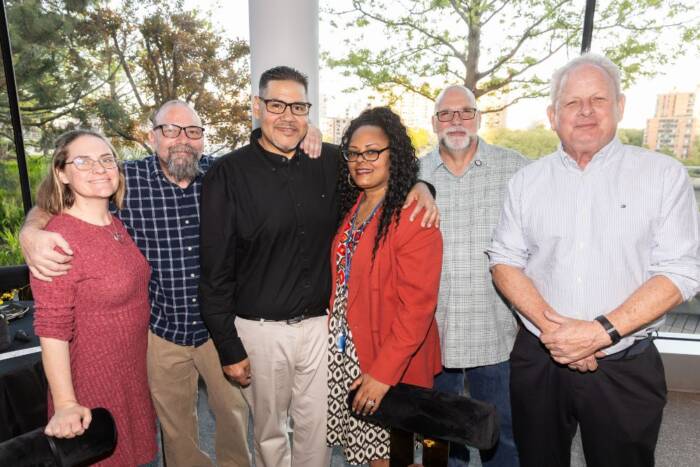Rockefeller University surpasses new federal safeguards for volunteers in clinical research

Rockefeller University has once again received accreditation from the Association for the Accreditation of Human Research Protection Programs(opens in new window) (AAHRPP), a nonprofit organization that sets the gold standard in safeguarding volunteers participating in clinical research. The intensive accreditation process—which requires nearly 600 pages of documentation and a site visit from the FDA—occurs every five years.
Organizations must prove they have the necessary resources, policies, procedures, and practices in place to maintain a scientifically and ethically sound clinical research program.
Rockefeller’s Human Research Protection Program (HRPP) oversees the reaccrediting process for the university, as well as policy implementation. “The HRPP ensures that the risks and benefits for volunteer research participants are weighed thoroughly and that the informed consents are done properly so that clinical research at the university and The Rockefeller University Hospital is held to the highest possible standards,” says Thomas Sakmar, HRPP’s director and the head of the Laboratory of Chemical Biology and Signal Transduction.
Since the last reaccreditation process, which took place in 2018, the regulations governing clinical research participants, known as the Federal Policy for the Protection of Human Subjects, or the “Common Rule,” was updated for the first time in more than three decades.
Among the changes were adjustments in how long and in what context a participant’s informed consent is given, for instance adding an option for broad consent for future research; the redefinition of the activities that can be considered research; and an expansion of the categories of investigation exempt from review by an institutional review board (IRB). The review requirements for minimal-risk research were also streamlined to expedite the process, and a new obligation for a single IRB to oversee a study that takes place at multiple sites was added.
“Our team worked diligently to update HRPP standard operating procedures and overhaul our program to comply with the new regulations in line with AAHRPP’s standards,” says Vanessa Smith, senior manager, IRB and reliance, a regulatory expert who spearheaded Rockefeller’s reaccreditation process.
The Rockefeller HRPP not only met the more stringent requirements, it surpassed them. “I’m really proud of our latest application because it was accepted by AAHRPP with zero requested edits or changes to the content,” she says. “They commended us on having such an excellent program and team.”
The university also received its first “no action indicated” rating from the FDA, says Sarah Schlesinger, chair of Rockefeller’s IRB, of which the HRPP is a part. “This indicates that we had no need to make any changes to our program. It’s the best characterization you can get.”
The university was also commended for the widespread adoption of a survey tool developed by a team led by IRB vice chair Rhonda G. Kost. Designed to gauge research participants’ perspectives on their experience—and tested in over 10,000 participants to verify its statistical soundness—the survey is now used in clinical and translational research settings across the country.
Rockefeller’s IRB is composed of 22 members who gather 10 times a year in marathon meetings to review and approve all proposals for clinical and translational studies. IRB members are volunteers, and half are nonscientists drawn from professions where ethical considerations are a top priority.
“We are grateful to our dedicated IRB and HRPP team members,” says Schlesinger. “They bring a level of rigor and experience with scientific research, clinical investigation, and experimental medicine to the protection of research participants at Rockefeller.”


